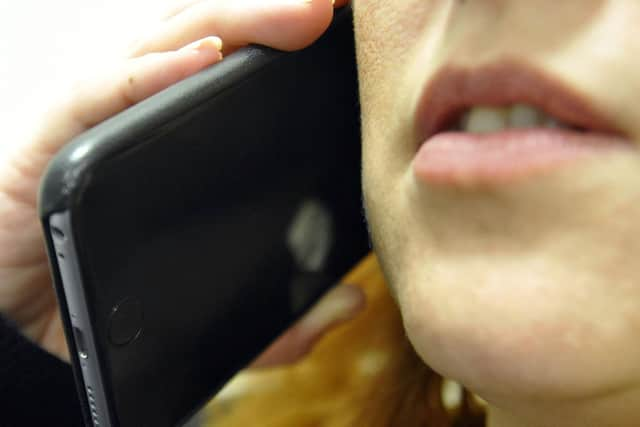New data reveals that mental health calls to Derbyshire Police have risen by nearly 250% amid ‘NHS crisis’
and live on Freeview channel 276
Research by the Labour Party has uncovered a huge spike in 999 calls requesting mental health support across Derbyshire between 2011 and 2021.
Freedom of information data released by Derbyshire Police shows there were 1,795 such calls in 2011, compared to a figure of 6,255 in 2021 – a rise of 248%.
Advertisement
Hide AdAdvertisement
Hide AdOn average, police forces received over 11,000 mental health related calls to 999 in 2021 – over 200 calls per week. Some larger forces received over 63,000 in just one year.


Labour's Shadow Policing Minister Sarah Jones said these figures showed that Derbyshire Police – along with their counterparts across the region – are increasingly tasked with plugging the gaps in mental health support for vulnerable people.
She said: “After 13 years of Tory government, the NHS is in crisis and the police are officially picking up the pieces. This data reveals unacceptable levels of pressure on the police to deal with soaring levels of mental health demand in the East Midlands and across the country.”
Chief Inspector Glenn Hoggard, who is the mental health lead for Derbyshire Police, said: “We are continuing to work with partners to ensure that people who are experiencing a mental health crisis are given the correct support by the most appropriate agency. Sometimes that will include the presence of an officer to ensure the safety of that person, as well as the public.
Advertisement
Hide AdAdvertisement
Hide Ad“However, once that risk has been mitigated it is for colleagues in the mental health setting to provide the immediate care they require.
“As part of the work to reduce the demand on the force, and provide the best care to the individual in crisis, two mental health triage cars now work across the county from 4.00pm to 1.00am, seven days a week. An officer and a mental health professional work together to attend incidents of mental health crisis to provide immediate assessments of the person’s needs – and ensure the most appropriate care pathway.
“It also ensures response officers are released from the incidents to allow them to respond to other emergency calls.”